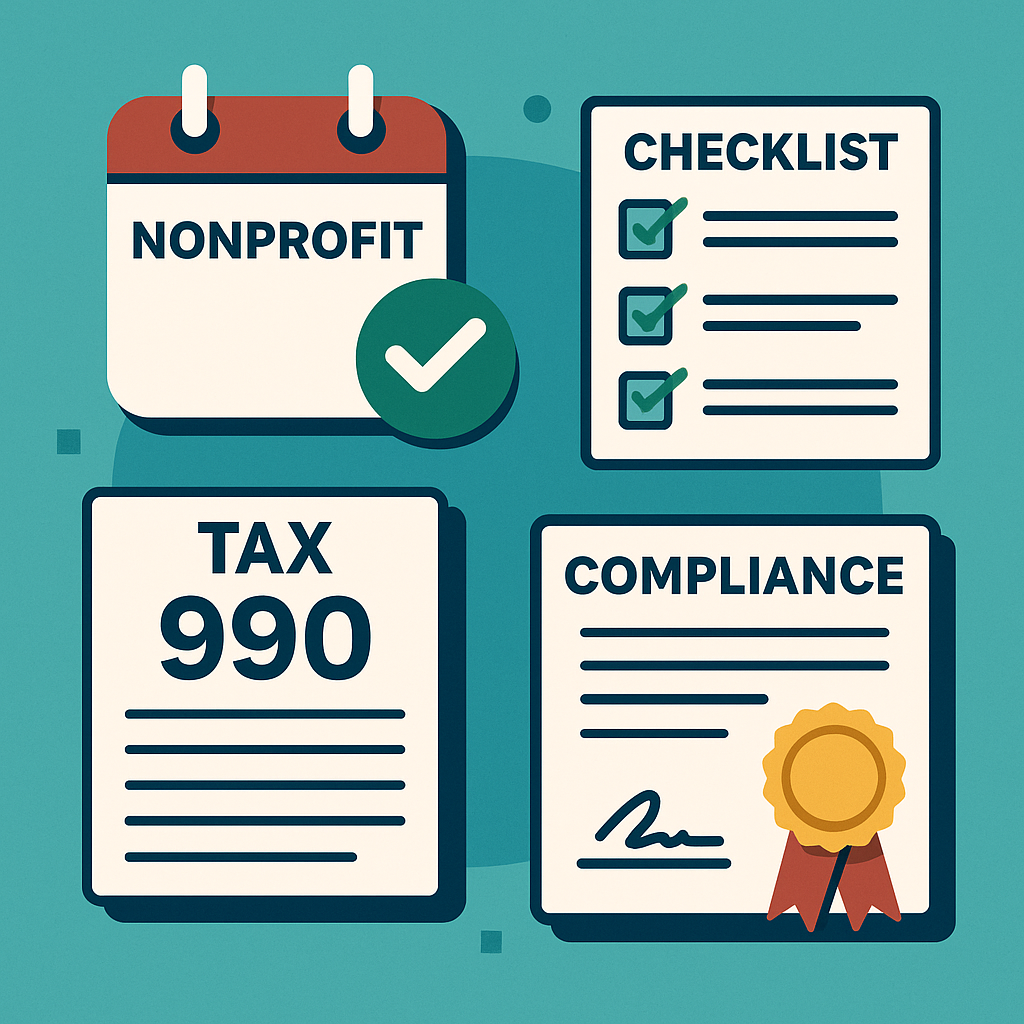What Utah Nonprofits Must Do Each Year Filings, Renewals, and Compliance Basics
Plain-English guide to annual reports, IRS returns, state renewals, and board governance so your nonprofit stays in good standing
Introduction. Running a Utah nonprofit does not stop after getting 501(c)(3) status. Each year you have key filings with the Utah Division of Consumer Protection and the IRS. This guide explains the essentials in simple terms.
Annual reports, IRS filings, and state renewals protect credibility, keep donors informed, and prevent penalties or administrative dissolution. Use the checklist below to stay compliant year after year.
File the Utah Charitable Solicitation Renewal
Submit IRS Form 990
Who files what:
- Form 990-N: Gross receipts under $50,000
- Form 990-EZ: Gross receipts under $200,000 and assets under $500,000
- Form 990: Larger nonprofits
When: Due the 15th day of the 5th month after your fiscal year ends.
Tip: Three consecutive missed filings can revoke tax-exempt status, even if late filings are later submitted.
Renew Business Registration with the Division of Corporations
When: Annually, based on your registration anniversary date.
How: File online through the Utah Business Portal.
Update: Organization name, address, and registered agent if anything changed.
Maintain a Registered Agent and Accurate Contact Information
Keep your agent current with the Division of Corporations. An expired or incorrect agent can lead to missed notices and loss of good standing.
Confirm Your Charitable Solicitation License Status
Nonprofits that solicit funds must maintain an active license with the Utah DCP. Some small organizations may qualify for exemptions, so verify eligibility before filing.
Keep Proper Records and Ensure Financial Transparency
- Maintain bylaws, meeting minutes, and financial reports
- Make your Form 990 publicly available upon request
- Track donations and restricted funds separately
Adopt and Review Board Governance Policies
Establish and update conflict-of-interest, whistleblower, and document retention policies. Encourage annual board reviews and sign-offs for accountability.
Watch Deadlines and Fix Lapses Quickly
Missed filings: You may face penalties, late fees, or revocation of registration.
To fix it: File overdue reports immediately and contact the Utah DCP to restore compliance. Keep a compliance calendar to prevent future lapses.
Utah Nonprofit Compliance Resource Chart
Video and Social Learning Hub
YouTube: Utah Nonprofit Compliance
Instagram: Utah Nonprofit Compliance
Need Help Applying This to Your Nonprofit?
Compliance keeps your organization transparent, trustworthy, and legally sound. If you are unsure what to file or when, check agency portals or talk with a Utah nonprofit attorney or CPA.
Talk to a Utah AttorneyFor more plain-English legal guidance, stay updated with Utah Law Explained, explore our mission on the About Us page, or connect with trusted counsel like Gibb Law Firm.
